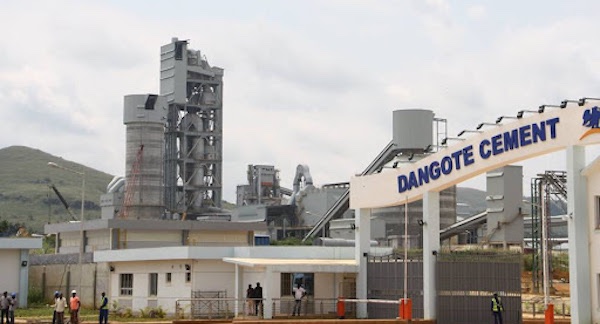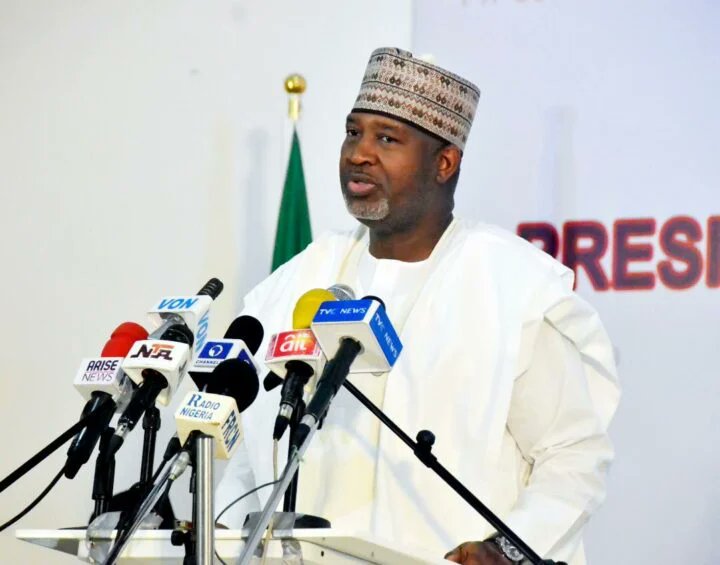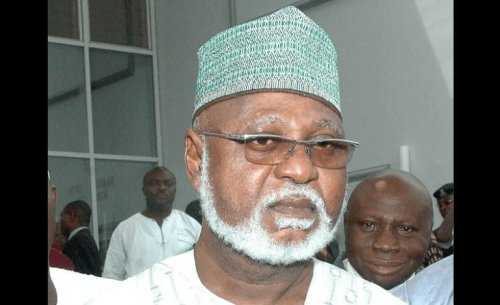Dangote accuses Kogi of contract breach, says Obajana acquisition properly done

The management of Dangote Industries Limited says its acquisition of the Obajana Cement Plant (OCP) followed due process contrary to claims by the Kogi state government (KSG)The Cable can report
Last week, the Kogi state panel on the acquisition of the cement plant said the purported transfer of the facility to Dangote Cement was not “proper”.
The state government further insisted that proof of ownership be provided, adding that it remained resolute on claiming the company to the state.
But on Tuesday, the management of Dangote Industries Limited (DIL) gave details of the transaction in a statement titled ‘Obajana Cement Plant: separating facts from fiction.’
According to the statement, the company said the Kogi state government has no equity interest in Obajana Cement Plc, adding that the plant, as a responsible corporate organisation, has been paying relevant state taxes, levies and charges to the Kogi since 2007 when production commenced.
DIL also accused Kogi of breaching contract agreement as it failed to provide tax waivers.
“The Obajana Cement Plant is one of the most critical components of economic activity in the nation, being one of the highest taxpayers, and vehicle for one of the largest companies invested in by thousands of Nigerian and foreign investors. Its most important assets are (1) its land, the plant and machinery thereon, and (2) the vast limestone deposit covered by mining leases issued under licence by the federal government of Nigeria (FGN),” the statement reads.
“The land on which the Obajana Cement Plant is built was acquired solely by Dangote Industries Limited (DIL) in 2003, well after it had acquired the shares in Obajana Cement Company in 2002, following the legally binding agreement it entered into with KSG to invest in Kogi state. DIL was issued three certificates of occupancy in its name after payment of necessary fees and compensation to landowners.
“The plant and machinery were conceived, designed, procured, built, and paid for solely by DIL, again, well after it acquired the shares in Obajana Cement Company. The limestone and other minerals used by the Obajana cement plant, by the provisions of the Nigerian constitution belonged to the federation, with authority only in the FGN and not the state in which the minerals are situated, to grant licences to extract and mine the resources.
“After the agreement with the KSG, DIL applied for and obtained mining leases over the said limestone from FGN, at its cost and has complied with the terms of the leases since inception. The government of Kogi state had no minerals to give, had no assets to give, and only invited DIL, as most responsible governments do, to come into the state and invest in a manner that will create employment, develop the state, and earn it taxes.”
THE AGREEMENT BETWEEN DANGOTE AND KOGI
On the issue of an agreement between Dangote and Kogi state government, the statement outlined items both parties agreed to.
Part of the agreement was that DIL would have a 100 share in the plant.
“It was agreed, inter alia, that: DIL would establish a cement plant with a capacity of 3,500,000 metric tonnes per annum; DIL shall hold 100 percent of the shareholding in OCP, and source for all the funds required to develop the cement plant; KSG shall have the option to acquire 5 percent equity shareholding in OCP within 5 years; and KSG shall grant tax relief and exemption from levies and other charges by KSG for seven years from the date of commencement of production,” the statement said.
“Consistent with the terms of the agreement, DIL sourced 100 percent of the funds that were used to develop the plant without any contribution from KSG. In line with its rights, ensuring alignment with the Dangote brand, as part of internal restructuring and for better market recognition, the name of OCP was changed to Dangote Cement Plc in 2010, and a number of other significant cement companies (such as the Benue Cement Company) owned by DIL were merged with OCP to become the enlarged Dangote Cement Plc.”
KOGI FAILED TO GRANT TAX WAIVERS
Meanwhile, on the issues of execution of the agreement: the plant, taxes, shares and dividends, DIL said it “assiduously and at significant cost” met all the terms of the agreement between it and KSG in relation to OCP.
DIL said while it built the cement factory, much bigger and better than envisaged, KSG could not meet its financial obligations of contributing to the funding of the plant in any form; “neither could KSG fund acquisition of 5 percent equity shares in OCP when it was asked on a number of occasions to exercise the purchase option.”
“KSG also did not meet its obligations to grant waiver of taxes, charges and levies that it could charge for the operations, affairs and activities of OCP. Rather despite being entitled (under the terms of the agreement with KSG) to tax relief and exemption from charges and levies by KSG for a period of seven (7) years from the date of commencement of production, OCP (and now DCP) has paid all due sub-sovereign taxes, levies and charges to KSG since it commenced production in 2007,” it added.
“KSG does not have any form of investment or equity stake in OCP, so no dividend or other economic and/or shareholding rights whatsoever could have accrued to it from the operations of the company.”
The company, however, said it is making efforts to resolve the disputes, adding that the shutdown of its plant has materially jeopardised the economic well-being of the country.
“It is hoped that the dispute resolution process we have initiated will quickly resolve the disputes and allow us to focus on our business without distraction and continue our significant contribution to our national economy





